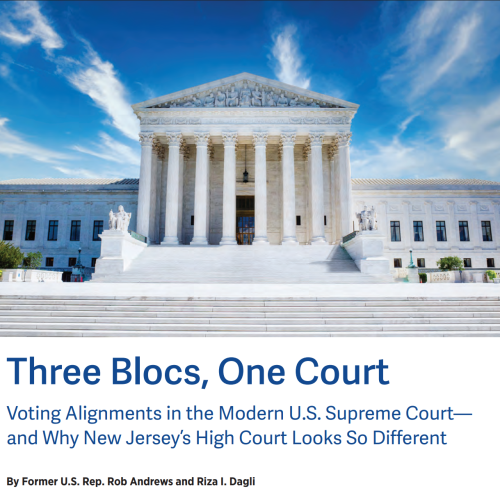Court Curtails Reach of Troublesome TCCWNA Claims
May 18, 2018
Medical practice successfully defeats class action
When does breaking the law violate a “clearly established right” of a consumer? And does a consumer need to suffer actual harm to be “aggrieved”?
These are the two questions the New Jersey Supreme Court recently answered in a highly-anticipated decision involving the Truth-in-Consumer Contract, Warranty and Notice Act (TCCWNA). This 1981 statute – which prohibits businesses from including terms in a contract or notice that violate a “clearly established right” of a consumer – has become a favorite tool of the plaintiffs’ class action bar, who have exploited its broad language and $100 statutory damages provision to bring novel class cases. There has been an explosion in its use lately to target notices and terms and conditions on retail websites.
Since these seemingly straightforward issues were unsettled, they came to the Court as certified questions from the Third Circuit Court of Appeals. TCCWNA does not define “clearly established” or “aggrieved,” and this lack of statutory guidance led to conflicting lower court decisions at both the state and federal level.
The Court in Spade v. Select Comfort Corp., found that an affirmative violation of a regulation governing the delivery of household furniture was a violation of a “clearly established right.” In other words, if a business includes language in a contract or notice that violates a clear regulation, this is enough to trigger TCCWNA’s protections. The Court also found that a consumer must suffer actual harm to be considered “aggrieved.”
Our client, a medical practice, recently confronted a variation of the second issue in successfully defeating a class action. Just like Spade, the case tested the limits of what it means to be an “aggrieved consumer” under TCCWNA. The basic question in our client’s case was: Can a consumer sue her doctor for charging an allegedly excessive fee to obtain a copy of her medical records when it was the consumer’s personal injury attorney who requested – and paid for – the records? The court said no.
In granting summary judgment in favor of our client, the trial court noted that TCCWNA only applies to a “consumer,” a term specifically defined as an “individual who buys, leases, borrows, or bails any money, property or service.” This definition does not extend to a party’s “agents” or “legal representatives,” unlike other prominent consumer protection statutes like the New Jersey Consumer Fraud Act. The court then found that, since the consumer herself had not paid for the records or agreed to reimburse her attorney, she was not an “aggrieved consumer” under TCCWNA.
The result reached by the court – which occurred before Spade was decided – was prescient. It is also consistent with the continued trend of state and federal courts curtailing TCCWNA’s reach. See, e.g., Dugan v. TGI Fridays, Inc., 231 N.J. 24 (2017) (limiting the circumstances under which a TCCWNA class action may be certified). This trend will likely continue, and Spade in particular will limit the use of the statute in “no injury” cases or those involving questionable allegations of harm. However, TCCWNA remains a formidable compliance hurdle that can result in large fines, and businesses should continue to review consumer-facing materials and websites to make sure they are up-to-date with applicable law.
Thomas Kamvosoulis, Counsel, and Lucas Markowitz, Associate, also contributed to this article.












